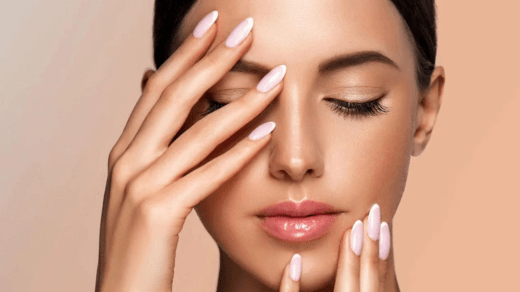
Certainly! Here are 30 points along with their respective pros and cons regarding the role of diet in achieving radiant skin:
The Role of Diet in Achieving Radiant Skin:
1. Hydration:
- Pro: Staying well-hydrated by drinking water helps maintain skin’s moisture and elasticity.
- Con: Overhydration can lead to water retention, which may affect the appearance of skin.
2. Antioxidant-Rich Foods:
- Pro: Antioxidants from fruits and vegetables help combat free radicals and protect skin from damage.
- Con: An excessive intake of certain antioxidants may have adverse effects.
3. Omega-3 Fatty Acids:
- Pro: Omega-3 fatty acids, found in fish and flaxseed, can reduce inflammation and contribute to healthy skin.
- Con: Overconsumption of omega-3 supplements can have side effects.
4. Collagen-Boosting Foods:
- Pro: Foods like bone broth, berries, and citrus fruits can promote collagen production for firmer skin.
- Con: Collagen-boosting effects may take time to show.
5. Balanced Diet:
- Pro: A balanced diet with a variety of nutrients supports overall skin health.
- Con: Maintaining a balanced diet can be challenging for some.
6. Vitamin C-Rich Foods:
- Pro: Vitamin C from oranges, strawberries, and bell peppers aids in collagen production and skin repair.
- Con: Excessive vitamin C intake may cause digestive issues.
7. Vitamin E Sources:
- Pro: Vitamin E from nuts, seeds, and spinach can protect the skin from UV damage.
- Con: High vitamin E doses may interfere with blood clotting.
8. Zinc-Rich Foods:
- Pro: Zinc, found in nuts and whole grains, supports skin health and helps heal wounds.
- Con: Excessive zinc intake can lead to digestive problems.
9. Avoiding Sugary Foods:
- Pro: Reducing sugar intake can help prevent acne and maintain skin clarity.
- Con: Eliminating sugar completely can be challenging for many.
10. Low-Glycemic Index Foods: – Pro: Low-GI foods like whole grains help stabilize blood sugar levels and reduce acne risk. – Con: Strictly adhering to a low-GI diet can be difficult.
11. Vitamin A-Rich Foods: – Pro: Vitamin A from carrots, sweet potatoes, and spinach supports healthy skin cell production. – Con: Excessive vitamin A intake can be toxic.
12. Green Tea: – Pro: Green tea’s antioxidants can protect against UV damage and soothe skin inflammation. – Con: Drinking too much green tea can have caffeine-related side effects.
13. Probiotics: – Pro: Probiotic-rich foods like yogurt promote gut health, which can improve skin conditions. – Con: Excessive probiotic consumption may cause digestive discomfort.
14. Foods High in Selenium: – Pro: Selenium from Brazil nuts and whole grains can protect skin from oxidative damage. – Con: High selenium intake can lead to toxicity.
15. Vitamins B Complex: – Pro: B vitamins support skin health by reducing dryness and improving complexion. – Con: Some individuals may experience side effects from B vitamin supplements.
16. Fiber-Rich Foods: – Pro: A high-fiber diet aids in digestion and detoxification, promoting clear skin. – Con: Rapidly increasing fiber intake can cause digestive discomfort.
17. Niacin-Rich Foods: – Pro: Niacin (vitamin B3) from chicken and fish can help manage acne and improve skin texture. – Con: High doses of niacin supplements can cause flushing.
18. Copper: – Pro: Copper-rich foods contribute to collagen production and skin pigmentation. – Con: Excessive copper intake can lead to toxicity.
19. Eliminating Trigger Foods: – Pro: Identifying and avoiding trigger foods can help manage skin conditions like acne. – Con: Restrictive diets can be challenging to maintain.
20. Moderate Alcohol Consumption: – Pro: Limiting alcohol intake can prevent dehydration, which can affect skin health. – Con: Excessive alcohol consumption has numerous negative health effects.
21. Avoiding Processed Foods: – Pro: Processed foods often contain additives and preservatives that can aggravate skin conditions. – Con: Eliminating all processed foods can be difficult in modern diets.
22. Vitamin K-Rich Foods: – Pro: Vitamin K from leafy greens can help reduce dark under-eye circles. – Con: High vitamin K doses can interfere with blood-thinning medications.
23. Alkaline Diet: – Pro: An alkaline diet may help reduce skin inflammation and improve complexion. – Con: Strictly following an alkaline diet can be challenging.
24. Avoiding Dairy: – Pro: Eliminating dairy can reduce acne breakouts for some individuals. – Con: Dairy-free diets may require careful nutrient planning.
25. Amino Acid-Rich Foods: – Pro: Amino acids from lean protein sources support collagen production. – Con: Overconsumption of protein can strain the kidneys.
26. Hyaluronic Acid Boosters: – Pro: Foods like bone broth contain nutrients that support hyaluronic acid production for hydrated skin. – Con: Limited scientific evidence supports the direct relationship between dietary hyaluronic acid and skin hydration.
27. Nuts and Seeds: – Pro: Nuts and seeds provide essential fatty acids that can improve skin texture. – Con: High nut and seed consumption may lead to calorie excess.
28. Citrus Fruits: – Pro: Citrus fruits are rich in vitamin C, which promotes collagen production and skin repair. – Con: Excessive citrus intake can erode tooth enamel.
29. Whole Foods vs. Processed Foods: – Pro: Whole foods provide essential nutrients for skin health, while processed foods may lack them. – Con: Whole foods can be more expensive and less convenient.
30. Individual Variability: – Pro: The impact of diet on skin health varies from person to person. – Con: Finding the right dietary approach for radiant skin may require experimentation.
Maintaining radiant skin through diet involves making thoughtful choices and finding a balanced approach that works for your individual needs. While diet can play a significant role, it should be combined with a comprehensive skincare routine and overall healthy lifestyle practices for the best results.



